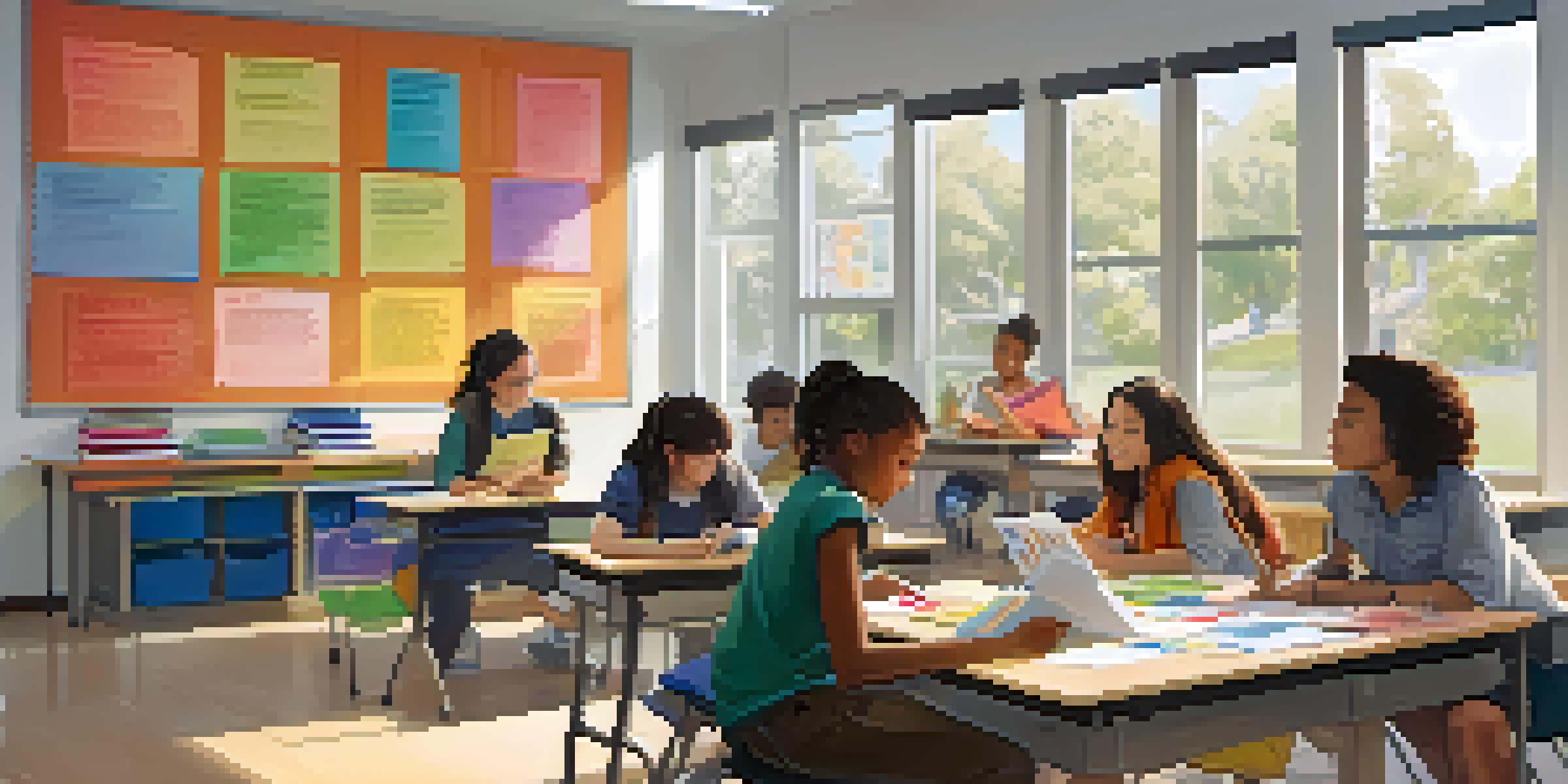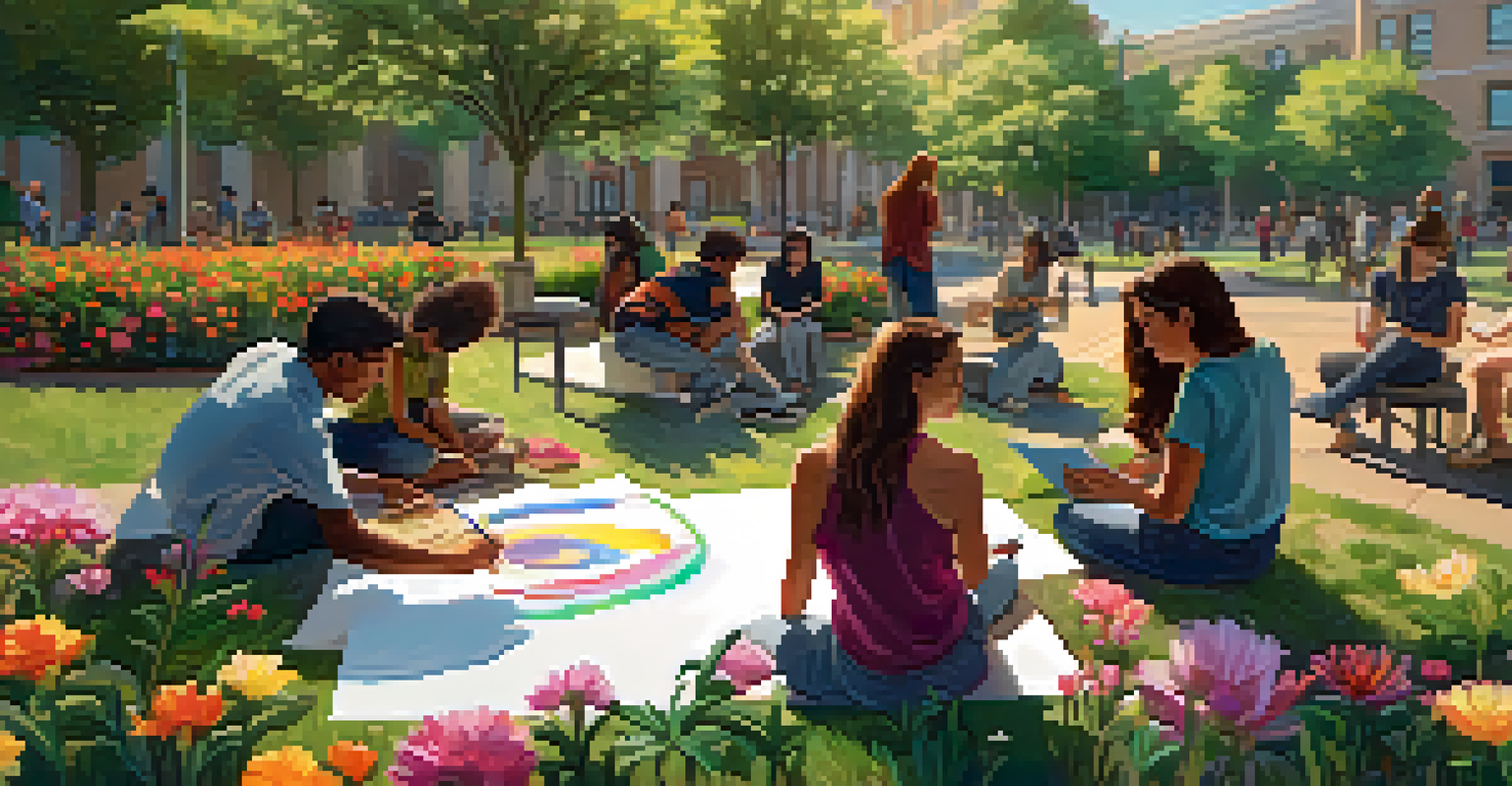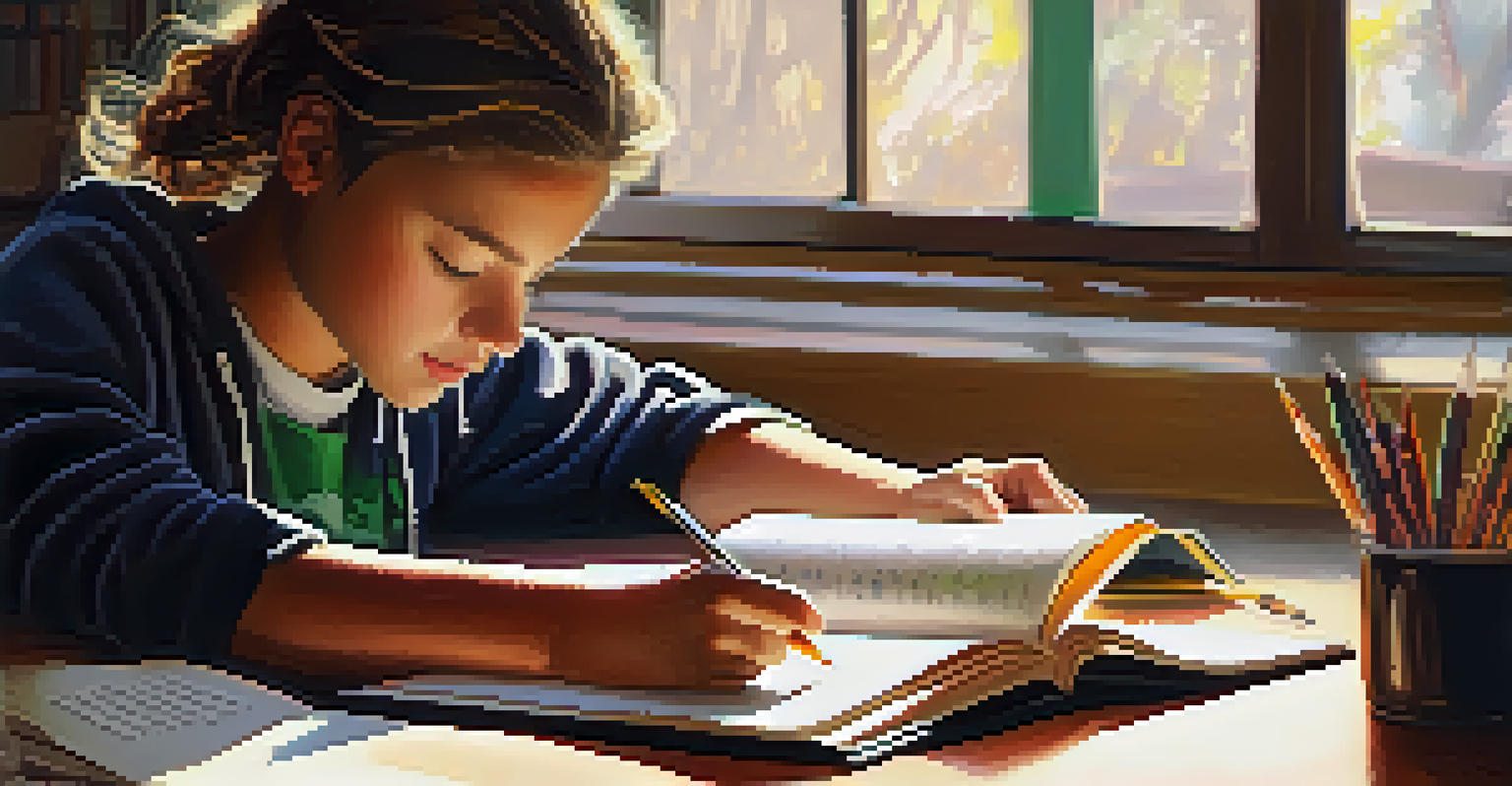The Role of Reflection in Personalized Learning Experiences

Understanding Personalized Learning and Its Importance
Personalized learning tailors education to meet individual student needs, preferences, and interests. This approach recognizes that each learner is unique, allowing them to engage with material in a way that resonates most with them. By focusing on the individual, personalized learning fosters a more meaningful educational experience, ultimately leading to better outcomes.
We do not learn from experience... we learn from reflecting on experience.
In a personalized learning environment, students often have choices regarding what, when, and how they learn. This flexibility empowers learners to take control of their educational journey, making them more invested in their own success. Such ownership is crucial, as it encourages students to set personal goals and strive to achieve them.
However, simply providing options isn't enough; reflection plays a critical role in helping students make sense of their experiences. It encourages them to think deeply about what they've learned and how they've learned it, paving the way for continuous improvement and self-awareness.
The Power of Reflection in Learning
Reflection is the process of looking back on experiences to gain insights and understanding. In the context of learning, it allows students to evaluate their progress and identify areas for growth. This self-analysis can lead to enhanced critical thinking skills, as learners assess what strategies worked, what didn’t, and why.

For example, after completing a project, a student might reflect on their approach, considering whether they managed their time effectively or if they sought help when needed. This internal dialogue not only helps clarify their learning process but also reinforces the skills they've developed along the way. Reflection transforms experiences into valuable lessons that can be applied in future situations.
Personalized Learning Empowers Students
Personalized learning tailors education to individual student needs, fostering engagement and ownership of their learning journey.
Additionally, reflection helps students develop a growth mindset, which is the belief that abilities and intelligence can be developed through effort and perseverance. By regularly reflecting on their experiences, learners become more resilient, viewing challenges as opportunities to learn rather than obstacles.
Incorporating Reflection into Personalized Learning
Integrating reflection into personalized learning experiences can take various forms, such as journals, discussions, or self-assessments. These activities encourage students to articulate their thoughts and feelings about their learning process. For instance, keeping a learning journal allows students to document their progress and reflect on their emotional responses to challenges they face.
Reflection is one of the most underused yet powerful tools for success.
Teachers can facilitate reflective practices by prompting students with guiding questions. Questions like, 'What was the most challenging part of your project?' or 'How did you overcome that challenge?' help students delve deeper into their experiences. This dialogue not only enriches their learning but also builds a supportive classroom environment.
Moreover, technology can enhance reflection by providing platforms where students can share their thoughts and receive feedback from peers and educators. Online discussion boards or learning management systems can serve as spaces for students to reflect collectively, fostering a sense of community and collaboration.
The Role of Teachers in Promoting Reflection
Teachers play a pivotal role in fostering a culture of reflection within personalized learning environments. By modeling reflective practices themselves, educators can demonstrate the value of self-assessment and continuous improvement. For example, a teacher might share their own reflections on a lesson, showing students that learning is an ongoing process for everyone.
Encouraging students to share their reflections with the class can also build confidence and strengthen their communication skills. When learners hear their peers discuss their experiences, it can inspire them to think critically about their own journeys. This peer interaction can create a rich tapestry of insights that benefits the entire classroom.
Reflection Enhances Learning Outcomes
Integrating reflection allows students to evaluate their experiences, leading to improved critical thinking and resilience.
Additionally, teachers can provide constructive feedback on students' reflections, guiding them toward deeper insights. This feedback loop not only helps students refine their thinking but also reinforces the idea that reflection is an essential component of learning.
Overcoming Barriers to Reflection
While the benefits of reflection are clear, several barriers can hinder its practice in personalized learning experiences. Time constraints often top the list, with busy schedules leaving little room for students to pause and reflect. However, even short moments dedicated to reflection can yield significant insights and growth.
Another barrier can be the fear of vulnerability. Students may hesitate to share their thoughts and feelings, worrying about judgment from peers or teachers. Creating a safe and supportive environment is crucial; students should feel comfortable expressing their reflections without fear of negative consequences.
Lastly, some students may simply lack the skills to reflect effectively. Educators can address this by providing explicit instruction on how to reflect, including models and examples. Teaching reflective techniques can empower students to engage in this important practice meaningfully.
Measuring the Impact of Reflection on Learning
Evaluating the impact of reflection on personalized learning experiences can be challenging but is essential for continuous improvement. Educators can use various assessment methods, such as surveys or interviews, to gather feedback on students' reflective practices. Understanding how reflection influences learning outcomes can inform future teaching strategies.
For instance, tracking student progress before and after incorporating reflective practices can reveal trends in understanding and engagement. If students report increased clarity about their learning goals or improved problem-solving abilities, it highlights the effectiveness of reflection as a tool for growth.
Teachers Foster Reflective Culture
Educators play a crucial role in promoting reflection by modeling practices and providing constructive feedback to students.
Furthermore, sharing these findings with students can reinforce the importance of reflection. When learners see evidence of their growth linked to their reflective practices, it can motivate them to engage more deeply in the process.
Conclusion: Embracing Reflection for Future Learning
In conclusion, reflection is a vital component of personalized learning experiences. It empowers students to take ownership of their education, fostering deeper understanding and critical thinking. As they reflect, learners not only assess their progress but also build resilience and adaptability—skills that are invaluable in today’s fast-paced world.
Educators, too, benefit from cultivating a reflective culture in their classrooms. By modeling and encouraging reflection, teachers create an environment where continuous improvement is celebrated, and learning is seen as a lifelong journey. This approach not only enhances academic outcomes but also prepares students for future challenges.

Ultimately, embracing reflection in personalized learning experiences is about more than just improving grades—it's about nurturing thoughtful, self-aware individuals who are equipped to navigate the complexities of life beyond the classroom.